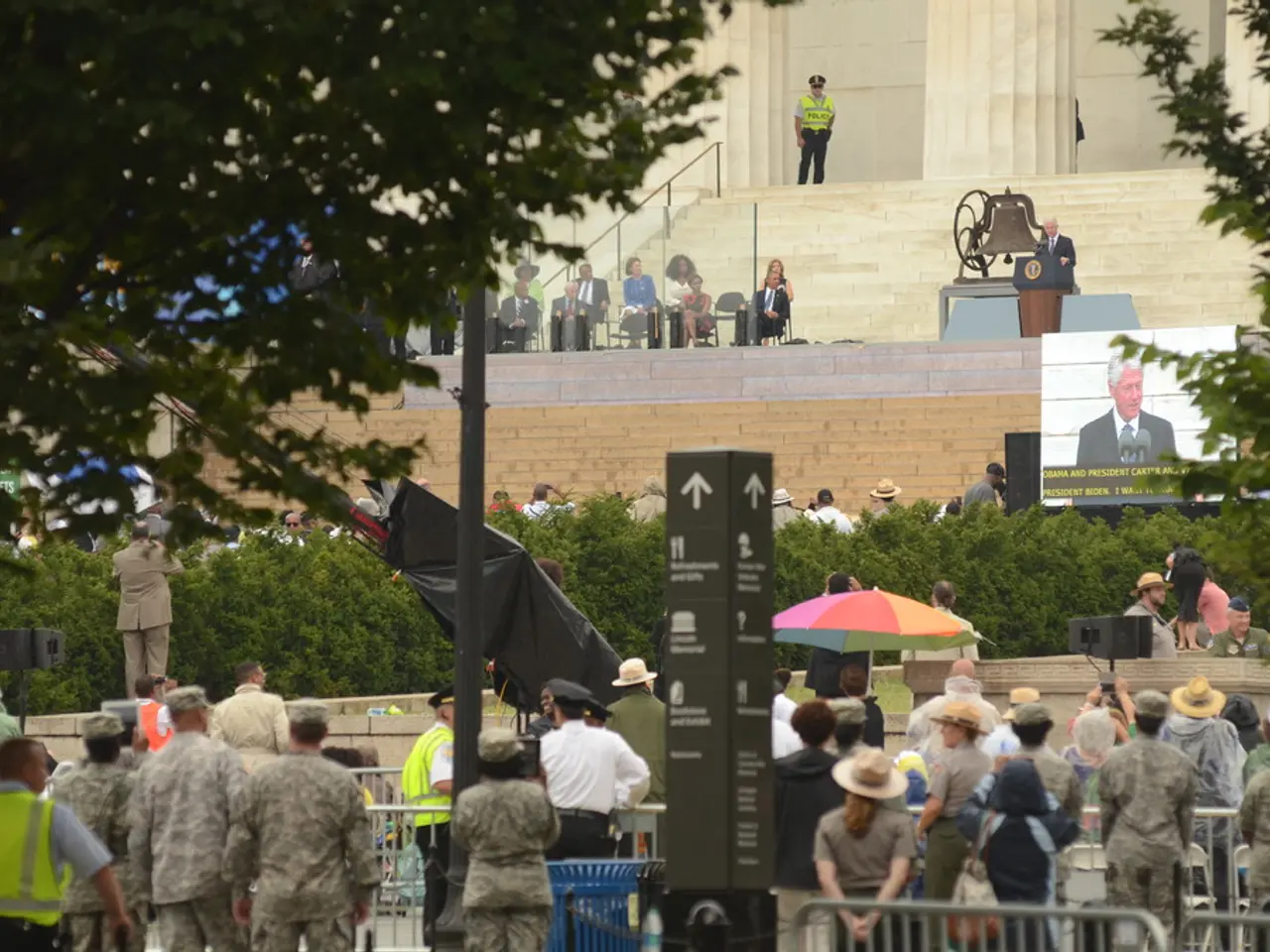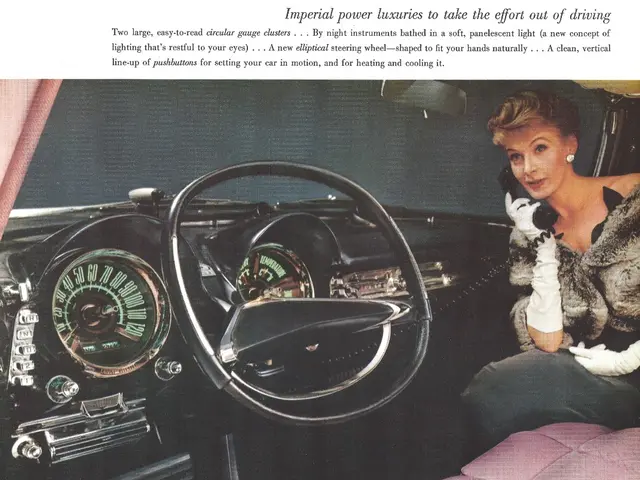U.S. White House meeting prevented from attendance by Polish President for Tusk administration officials
In an unprecedented move, Poland's President Karol Nawrocki is visiting the White House without any government representatives in his delegation. This decision marks a dispute between Tusk's centre-left government and the opposition Conservatives-aligned President Nawrocki.
The US has around 10,000 troops stationed in Poland on a rotating basis, as part of a NATO presence on the organization's eastern flank. The White House asked Nawrocki, not Tusk, to represent Poland at the US President's recent teleconference with European leaders.
The exclusion of government representation at the meeting in the White House has been attributed to the strained relations between the Polish government and the White House. Zbigniew Bogucki, Nawrocki's top aide, stated that no one from the foreign ministry was invited because the government has poor relations with the White House and has in the past "disgraced itself" with critical comments about US President Donald Trump.
In the past, the practice has been for a representative of the foreign ministry to participate in the president's meetings, as was the case when Nawrocki's predecessor, Andrzej Duda, visited Washington. The foreign ministry sent a letter to President Nawrocki instructing him on how to approach talks with Trump, which was leaked to the media.
The Tusk government has backed the "coalition of the willing", a number of States, mostly European, willing to guarantee any future peace in Ukraine. However, Poland's Constitution states that the government "shall conduct the internal affairs and foreign policy of Poland" and that "the president shall cooperate with the prime minister and the appropriate minister in respect of foreign policy". This constitutional provision suggests a collaborative approach between the executive branches in foreign policy matters.
President Nawrocki, in a bid to restore good relations with the US, which this government lacks due to past critical comments, did not include any government members in his delegation. Bogucki found it "bizarre" for the government, with poor relations with Washington, to "try to dictate what the president should and should not say".
The letter advised Nawrocki to avoid making commitments for further Polish arms purchases from the US, not to declare support for a US company for a planned second nuclear power plant in Poland, and to avoid discussing the government's plans for a new digital tax and imposing controls on social media. This advice seems to indicate ongoing disagreements between the government and the President on various policy matters.
Nawrocki has vetoed several pieces of legislation supported by the government and is refusing to appoint Tusk's nominee as ambassador in Washington. This standoff between the President and the government is likely to continue, with potential implications for Poland's foreign policy and relations with key allies such as the US.
Read also:
- United States tariffs pose a threat to India, necessitating the recruitment of adept negotiators or strategists, similar to those who had influenced Trump's decisions.
- Weekly happenings in the German Federal Parliament (Bundestag)
- Southwest region's most popular posts, accompanied by an inquiry:
- Discussion between Putin and Trump in Alaska could potentially overshadow Ukraine's concerns








